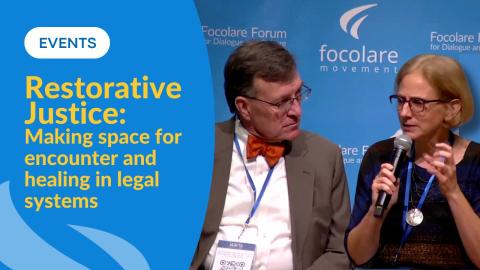
Adobe Stock
The widely acclaimed musical “Les Misérables” captured beautifully the essence of Victor Hugo’s classic novel. In one of the more poignant scenes, the protagonist struggles with himself after the wrong man is arrested: “Who am I? Who am I? I’m Jean Valjean! … Who am I? 24601!” Not a number, but a name.
In a recent interview, Rev. James Woodall, civil rights advocate and New City Press author, said: “Think about people who are in prison. We oftentimes [ascribe to them] the most heinous of crimes… and quite frankly that’s just not the case.
“The majority of people are there because of drugs, because of mistakes they have made, and even some of the most violent offenders, those are people too… They have names, they have stories, they have lives… [We must allow] them to speak their truth because… we bear some level of responsibility for them committing what they have committed.”
The responsibility of society does not end when someone gets a fair trial, receives a sentence and is imprisoned. The final intent of incarceration should not be revenge, but redemption. While in a few cases it might be necessary to detain an individual in order to keep society safe, most inmates will be released after completing their sentence or part of it.
The challenge of reintegration
What happens next? Reintegration in society is a big challenge for former inmates. Not being able to have a driver’s license, a car or a bank account bans them from many jobs. And a background check, required by many employers, is often the end of any job application.
But there are exceptions—some companies, like Starbucks or Dave’s Killer Bread, whose co-founder was a former inmate, make it their mission to hire people with felony convictions. And there are many organizations that assist with the reintegration in society. Here are a few examples.
Prison Fellowship
Founded in 1976, Prison Fellowship is the largest American non-profit serving current and former inmates and their families. Its mission is rooted in the belief that everyone is a child of God with inherent dignity and potential, and that even the most broken lives can be made whole again.
Prison Fellowship carries out its mission along three interlinked tracks: working with prisoners while incarcerated and upon their reentry into society; supporting families of prisoners through Prison Fellowship Angel Tree, which provides Christmas gifts for children of prisoners, summer camps and one-day events for the children and other activities; advocating for restorative justice.
Prison Fellowship’s website has illustrative powerful stories of lives changed and successful second chances. It also invites those who feel called to minister to prisoners and their families to consider joining their army of volunteers in prison ministry, advocacy or family reconciliation.
Diocesan ministries
Similar volunteer opportunities are also available through diocesan ministries such as Kolbe House Jail Ministry of the Archdiocese of Chicago. It provides in-jail ministry of presence and accompaniment, family support ministry and reentry support ministry. It publishes “Blessed and Broken,” a quarterly anthology that seeks to lift up the voices of those impacted by incarceration.
The Archdiocese of New York supports Thrive for Life, a prison project founded by Fr. Zach Presutti SJ, which mentors incarcerated and formerly incarcerated individuals on their journey to reentry. With programs across six correctional facilities in New York and New Jersey, the organization has helped transform thousands of lives.
Circles of Support and Accountability
Grounded in restorative justice principles, Circles of Support and Accountability (CoSA) is a Canadian program that assists people who have committed sexual offences to reintegrate into the community and lead constructive, accountable lives.
Circles include core members (offenders reintegrating into the community), trained volunteers and CoSA staff. First established in Hamilton, Ontario in 1994, in response to the lack of adequate support and accountability mechanisms, Circles assist core members to recognize and accept responsibility for the harm they have caused.
Ophelia has been a volunteer with CoSA since 2013. She found out about this after-prison ministry at a local conference sponsored by the Catholic Archdiocese of Vancouver.
“I wanted to spend my time volunteering with a project that is really in need of volunteers, and doing something that contributes to positive change in society. CoSA is one of the programs that is always in need of volunteers due to the demand.”
CoSA volunteers undergo rigorous screening and training. “The core members on parole usually don’t have any friends or family to support them. We help them as a group to keep them accountable while reintegrating into society.”
Does she ever fear for her own personal safety? “Not really. We always meet in a group setting with a mix of male and female volunteers, and if we ever need to meet with the core member outside of the weekly meeting, we do so at a public place, like a fast-food restaurant. Female volunteers never meet with the core member alone.
“Also, the core members value us a lot, as we usually are the only contacts they have after coming back out to society. This is something that they do not want to jeopardize.”
Today CoSA operates at 15 sites across Canada, often in partnership with chaplaincies and ministries of various churches—and across the UK and Europe, the United States, Australia, and South Korea.












